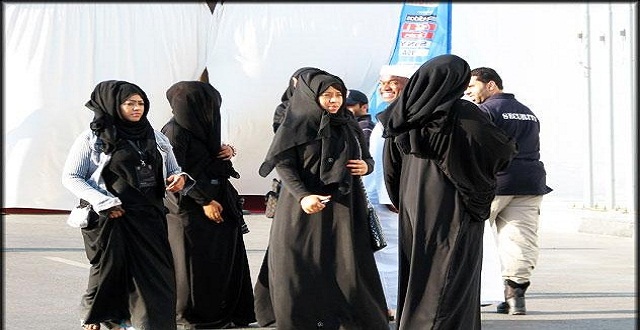
The Noble Qur`an has permitted polygamy (but, with strict conditions and within prescribed limits) and here we have to face up to a barrage of objections and assaults of the opponents, who, armed with a cursory study and influenced by imprudent sentiments, have set out to oppose this Islamic ruling.
The Westerners, in particular, tend to criticize us by saying that Islam has permitted the males to create a harem and take for themselves an unlimited number of spouses. As a matter of fact, Islam has neither permitted the construction of harems – as they take it to mean – nor has it permitted unconditional and unqualified polygamy.
Explanation: Studying the conditions that prevailed in different regions before the onset of Islam, we infer that unreserved polygamy was a routine affair in those days even to the extent that on some occasions, when the polytheists would convert into Muslims they would have in their possession around ten spouses. Thus, multiplicity of wives is not an invention of Islam; on the contrary, Islam has confined it within the framework of the necessities of human life and qualified it by means of strict conditions.
Islamic laws are determined on the basis of the actual needs of humans and not on the basis of external propaganda and ill-considered sentiments. The issue of polygamy too has been given consideration from this angle. This is because none can deny the fact that men, in the various goings-on of life, are more exposed to peril than the women, and they are the ones, who predominantly bear the brunt of actual casualties in battles and other catastrophes.
It cannot also be denied that the sexual life-span of men is more than that of women since women, at a certain age lose their sexual strength whereas men do not.
In addition, during menstruation and certain phases of pregnancy the women are obliged to observe a restriction of sexual activity whereas the men have no such restrictions.
Apart from all the above there are women who, due to various reasons, lose their husbands and are usually not sought by the men as a first-wife, and in the absence of polygamy, they would always have to remain without a spouse; we read in numerous newspapers that this group of widowed women, due to the restrictions placed upon the issue of polygamy, complain of the tangles of life and regard this curb as a kind of sentimental oppression which they are subjected to.
Taking these realities into consideration, in such instances wherein the balance between men and women is disrupted due to certain factors, we are left with no option except to select one of the following three alternatives:
1. Men should, at all times, content themselves with just one spouse, while the extra women should remain without a spouse for the rest of their lives, suppressing and killing all their innate needs and internal desires.
2. Men should have only one official and legal spouse, but are permitted to establish illicit physical relationships with women, who are without spouses, and keep them as mistresses and paramours.
3. Those, who possess the means, should be permitted to govern more than one spouse. Individuals, who would not be inconvenienced physically, economically and ethically, and who possess the ability to maintain equity and even handedness amongst all their spouses and children, should be permitted to take more than one spouse for themselves.
Undoubtedly, there exists no other alternative than these three.
If we were to choose the first alternative, we would have to wage a battle against human innate instincts and spiritual requirements, and disregard these sentiments and feelings of the women – a battle which we would never win. On the assumption that this scheme is actually put into practice, the inhumane aspect associated with it is something which is clear for everyone to see.
In other words, when necessary, this issue should not always be scrutinized from the viewpoint of the first wife but should also be analyzed from the standpoint of the second wife. Those who consider polygamy to be the cause of the sufferings of the first wife, view this issue from only one perspective. It ought to be studied from three perspectives – from the standpoint of the male, the first spouse and the second spouse, and the issue should be judged after taking into regard the interests and well-being of all three of them.
As for the second alternative, if we were to select it, we would have to legalize and formalize prostitution. In addition, the women, who are kept as mistresses and used for sexual gratification, would neither have any security nor a future for themselves, and their status would be ruined, and these are things that no rational person should ever accept.
Thus, the only alternative that remains is the third one, which not only responds positively to the innate desires and the inherent needs of the women, but it also keeps women away from the evil consequences of prostitution. It prevents disruption of the lives of this group of women and thus serves to protect society from a multitude of sins.
It must be noted that although polygamy is a social necessity in certain instances and is one of the incontestable rulings of Islam, fulfilling the conditions necessary for it in the present times differs vastly from that of the past. In the simple and Spartan life of the past, it was easy for everyone to maintain equity amongst the spouses but in the present times, those who wish to make use of this ruling must ensure that comprehensive equity is observed. Basically, polygamy should not be pursued for the sake of carnal and physical desires.
Interestingly, the very opponents of polygamy (such as the Westerners), during the course of history, have encountered events that have clearly manifested their need for it. For example, after World War II, the need for polygamy was intensely felt in the war-torn countries, especially Germany, which even compelled some of their intellectuals to reconsider their views with respect to the prohibition of polygamy. In addition, they conducted a study of the Islamic program of multiplicity of wives from al-Azhar University.
However, severe objections on the part of the Church forced them to shelve their plans; the consequence of which was wild and outrageous profligacy that eventually engulfed the length and breadth of the war-torn countries.
Apart from the above, the inclination of some of the men to possess more than one spouse is something that cannot be denied, although if it were to arise as a result of carnal desires, it is not to be taken into regard. A wife’s inability to conceive and the husband’s intense desire to have a child provide a rational support to such an inclination.
There may be instances where the inability of the wife to satisfy the intense sexual desires of the husband leaves him with no alternative except to turn towards a second marriage – at times even compelling him to resort to illegitimate means to achieve his objective in the absence of legitimate ones.
Hence, in cases such as these, his inclination cannot be regarded as being illogical or irrational. It is for this reason that even in countries that prohibit polygamy, in reality, relationships with several women are widely prevalent whereby one male tends to have illicit relationships with several women at the same time.
The well-known French historian Gustav Lebon considers the issue of Islamic polygamy, which is bound and limited by conditions, to be one of the distinguishing features of this religion. Comparing it with the free and illicit relationship of a male with several females in Europe, he states: In the West too, despite the fact that the weather and natural environment do not warrant such a custom (polygamy), monogamy is something that we come across only in books of law!
For, I do not suppose that the presence of traces of this custom, in our actual socialization, can be denied! Honestly, I am at a loss and fail to comprehend what the legal, but confined, polygamy of the East lacks in comparison to the phoney polygamy of the West? In fact, I declare that the former is better and more seemly than the latter, in every respect.
Of course it is not to be denied that some of the so-called Muslims, without taking into regard the Islamic ideology behind this rule, have sought to misuse it, maintaining ignominious harems for themselves and violating the rights of their wives. This flaw is not in the law but rather in the individuals themselves, and their deeds should not be regarded as the laws of Islam. Is there any law, which, despite its excellence, is not put to misuse by profiteering individuals for their personal benefit?
Question: At this juncture some may question that if women find themselves in the abovementioned circumstances; would they be permitted to take two husbands for themselves too?
The answer to the above question is not very difficult:
Firstly: (Contrary to what is popular among the general public) the sexual desire in men is several times more than that in women; books relating to sexual issues state frigidity to be the disorder which is prevalent in the majority of women whereas, in the case of men, it is just the opposite. Even with respect to animals it has been observed that sexual advancements are usually initiated by the males of the species.
Secondly: Polygamy, in the case of men, does not entail any social or legal complications whereas, if the women were to possess two husbands, it would lead to numerous problems – the simplest of them being the issue of genealogy of the child, for it would not be known to which of the husbands it belongs, and such a child would certainly not be cared for and supported by any of the husbands. Some of the scholars are of the opinion that a child, whose father’s identity is unknown, tends to be less loved and cared for by the mother. Thus, such children find themselves deprived and denied with respect to love and affection, and unclear about their legal rights.
It may perhaps be unnecessary to mention that resorting to contraceptives such as pills or the like can never yield certainty or confidence that a child will not be conceived, for there have been innumerable instances where women, who have used them or made mistakes while using them, have conceived children. Thus, no woman can, by trusting and relying upon such measures, take multiple spouses for herself.
Due to these factors polygamy, in the case of women, cannot be rational, whereas in the case of men, after observing its conditions, it is not only logical, but practical too.










